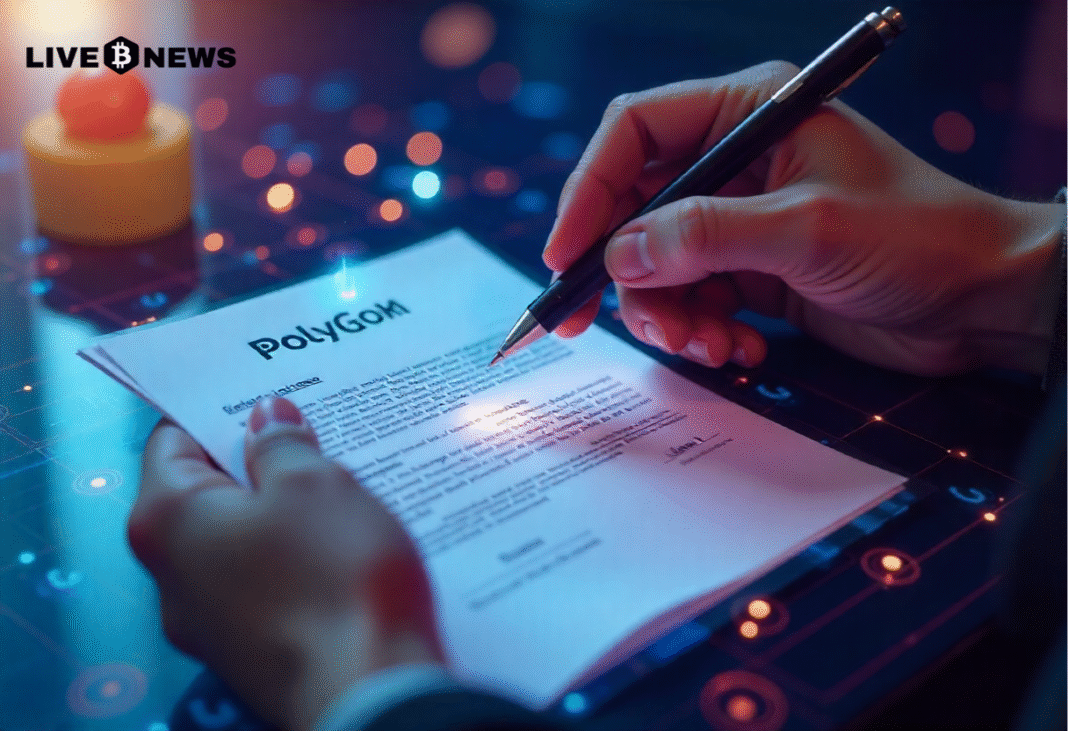The Philippines adopts Polygon blockchain to verify public documents, prevent deepfakes, and boost trust in government transparency and digital services.
The government of the Philippines has started using the Polygon blockchain to notarize public documents. This decision is part of the country’s push to improve transparency and prevent fraud. Maria Francesca Montes Del Rosario, an undersecretary at the Department of Budget and Management (DBM) made the announcement. On July 30, 2025, she announced it in a Facebook post.
Philippines Adopts Blockchain to Fight Deepfakes
First of all, this new system can prevent deepfakes and fake documents created with the assistance of artificial intelligence. Blockchain makes an inalterable digital record. This implies that anybody will be able to verify whether a government document is authentic or not. Consequently, this further instills confidence in how the government operates and the handling of money.
Moreover, the blockchain platform has a tool known as Lumen. It is one of the services of BYC Blockchain-as-a-Service (BaaS). BayaniChain developed this system with the assistance of ExakIT Services. It was launched officially at Boncodin Hall in the DBM Central Office. The name of the event was “From Blocks to Assets: Unlocking the Value of Data with Blockchain, DBM.”
In the proceeding, Del Rosario explained how the system works. She explained that blockchain effectively combats deepfakes, as bad actors cannot forge government documents. Additionally, she noted that the government also uses emerging technologies like AI and satellite images to further improve public service delivery. The project has been described as historic by Paul Soliman, the CEO of BayaniChain. According to him, it is the first time that a government office in the Philippines has adopted blockchain to handle its national budget.
Related Reading: Binance Helps Philippines Track Crypto Ransom Funds
Polygon Faces Outage Day After Philippine Blockchain Launch
Meanwhile, the very next day after the launch, on July 31, 2025, the Polygon network temporarily went down. This was due to an error in Heimdall v2, which is one of the primary layers of Polygon. The duration of the outage was in the region of three and a half hours. However, the Bor layer of the network continued to work. This implied that the system of notarization was not interfered with. Even though certain services, such as block explorers, went down, the main blockchain remained operational.
Fortunately, this problem was rectified by the Polygon team in a short time. This indicated that the network is robust and reliable in carrying out critical activities. In this instance, it confirmed that blockchain is secure and reliable when using it to record government data.
However, this is not the only blockchain initiative in the nation. In 2024, the Department of Science and Technology (DOST) initiated a course to educate students on the blockchain and NFTs. This program is meant to prepare young Filipinos to work in the digital world. The country strives to be a leader in terms of the usage of blockchain.
In a nutshell, the new blockchain system in the Philippines is a giant leap towards a truthful and effective government. It aids in the security of documents, combats fake information, and enhances the way the country utilizes public funds. Having powerful partners and modern technology, the government is demonstrating the potential of blockchain technology to serve the common good.



